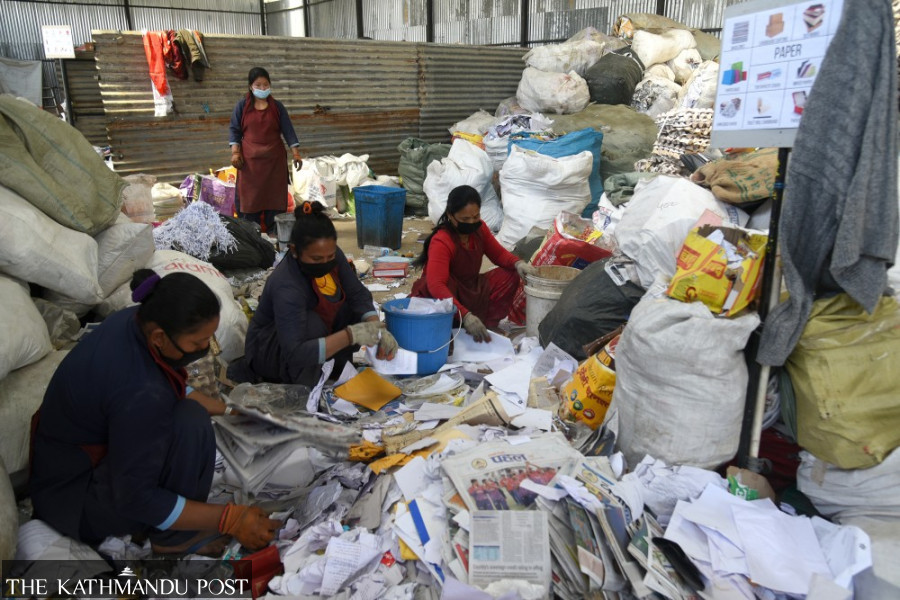Kathmandu
Seven wards of KMC start waste segregation, four more to start soon
The city office has also issued a tender notice of more than Rs2.2 million to sell segregated reusable waste.
Post Report
At least seven wards of the Kathmandu Metropolitan City have started segregating degradable and non-degradable waste materials from the households, as the city office has enforced waste segregation rules in those local units.
According to officials at the metropolis, Wards 5, 7, 10, 12, 24 and 27 have already started segregating the waste materials generated in the households.
“Waste segregation rules have been expanded to seven wards,” said Rabinman Shrestha, chief of the Environment Department under the KMC. “Four more wards—6, 20,22,23—have also been preparing to segregate the waste materials.”
The metropolis started collecting segregated wastes from ward 27 in February this year. The city office has also arranged separate garbage trucks to collect segregated waste materials from households.
Degradable waste materials are being turned into compost at the KMC’s waste transfer station. Officials said that the metropolis has also been using reagents to expedite the compost-making process.
“Compost made from degradable waste materials is now ready and interested people can approach us for it. We will provide it free of cost,” Shrestha said. “We will give priority to the people from the wards from where waste segregation rules have been enforced.”
The metropolis has planned to use the compost in the plants and flowers and the garden inside the metropolis.
Along with making compost out of discarded household waste, the metropolis has been also using degradable waste to fill in the bio-methanation plant, which was provided by the European Union.
Shrestha said that waste materials filled in a tank of biogas have just started to produce gas, which is being filled in biogas balloons. Once the gas is filled in biogas balloons, it can be used in cooking and generating electricity.
The KMC facility can generate 15 kilowatts of electricity from biogas.
Making compost from discarded waste material and generating biogas and electricity are among the measures the metropolis is working on to lessen the quantity of waste materials in the city.
Officials said they have been working to segregate degradable and non-degradable waste materials in various places in the city.
The 32 wards of the metropolis will be divided into eight sectors and the waste materials will be segregated in the respective blocks.
Waste segregation at the source was one of the measures Mayor Balendra Shah touted as a solution to Kathmandu’s chronic garbage problem. After he assumed office, Shah asked city residents to start segregating waste at the source. They started doing so, using separate bins in their homes. But the plan didn’t work, largely due to a lack of preparation on the KMC’s part.
The Kathmandu Valley generates over 1,200 tonnes of solid waste every day, nearly 60 percent of which comes from the KMC alone. Experts say 60 percent of organic waste originating in the Valley can be converted into compost and the remaining 30 percent of non-degradable waste can be recycled.
Meanwhile, the city office on Monday issued a tender notice to sell reusable non-degradable waste worth over Rs222 million. Those waste materials were segregated from the waste dumped in the landfill site in Bancharedanda.




 14.12°C Kathmandu
14.12°C Kathmandu










